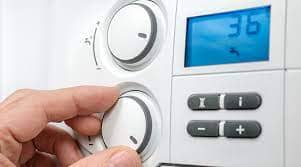
Boiler breakdowns are relatively common, especially during cold months, unlike other home appliance types. As such, it is essential to have a plan in place if you are having trouble with your heating system.
Several things can go wrong with your boiler, and you should be prepared to handle any problems that may arise. This article will explore some of the most common reasons and prevent boilers break down.
Reasons and Prevention of Boiler Breakdowns
1. Corrosion and Rust
If you live in an older house or apartment, your boiler is likely to have more problems with corrosion and rust. These two factors may lead to multiple leaks and failures.
If you suspect your boiler leaks, you should immediately contact a safe gas engineer. Likewise, dirt and debris could obstruct water flow, which can cause the boiler to break down.
Therefore, it is essential to schedule regular maintenance appointments to prevent your boiler from breaking down.
2. Due to Internal Component Wear and Tear:
One of the most common is due to internal component wear and tear. You can fix it yourself or call a plumber or engineer to check it out.
Another common reason is due to sediment and circulation problems. These could be signs that you should replace your boiler. In any case, it’s better to contact a professional to have it inspected.
3. Broken Diaphragm Valve:
The leading cause of a boiler breakdown is a broken diaphragm valve. It can prevent the flow of water through the internal plumbing system.
Moreover, a broken diaphragm valve can disrupt the gas or liquid flow through the heating system. Hence, it’s essential to maintain your boiler properly working to prevent this breakdown. In addition, you should avoid letting it go unattended.
4. External Stress:
External stress can lead to mechanical fatigue damage. For instance, external stress from the boiler can cause the tubes to fail. The result is that your boiler may be inefficient. In addition, the heat and pressure inside the boiler can make the water in the water tank and the surrounding air contaminated. It will cause your home to lose heat. To avoid this, you should ensure your system is in good condition. If your boiler is losing pressure, contact a technician and inspect it.
Methods to Prevent Boiler Break Down:
1. Heating System:
One of the best ways to prevent boiler breakdowns is to use your heating system as much as possible, even during the summer months.
While most people don’t use their boilers as much as in winter, a complete start-up process can help ensure the boiler operates efficiently.
If you notice a sudden drop in temperature or a strange noise, you should contact a professional. It will ensure that the problem is resolved before it becomes too severe.
2. Water Quality:
Check your boiler’s water quality. Make sure that it is as pure as possible. If the water contains any chemicals, this could cause corrosion.
Use clean and pure water for your boiler’s makeup to avoid costly repairs.
3. Boiler is Not Turned off Completely:
When you take a vacation, make sure that your boiler is not turned off completely. You should set the temperature to be functional and safe to operate.
You should also ensure that you have the right equipment for your boiler. Having a working boiler is essential for your business.
You need to make sure it meets all the safety standards to avoid accidents in your building. So, get the best possible service to keep your boiler in good shape and running at optimal performance.
4. Reliable Boiler Maintenance Plan:
A reliable boiler maintenance plan is necessary to avoid the costly costs of boiler repairs. Whether your boiler is old or new, it is essential to keep it in good working order and free from leaks.
Proper maintenance is required by law and is essential for a safe environment. By following these tips, you can prevent your boiler from breaking down. But, of course, the best way to prevent a breakdown is to check it regularly and ensure that it’s in good condition.
Conclusion:
When a boiler breaks down, it is vital to identify the cause and repair it as soon as possible. Most boilers are susceptible to corrosion caused by sludge buildup and acid damage.
These often indicate more significant problems, such as sludge deposition or high water pressure. Fortunately, the good news is that you can prevent most of these problems with regular maintenance. Here are some ways to prevent boiler breakdowns.
